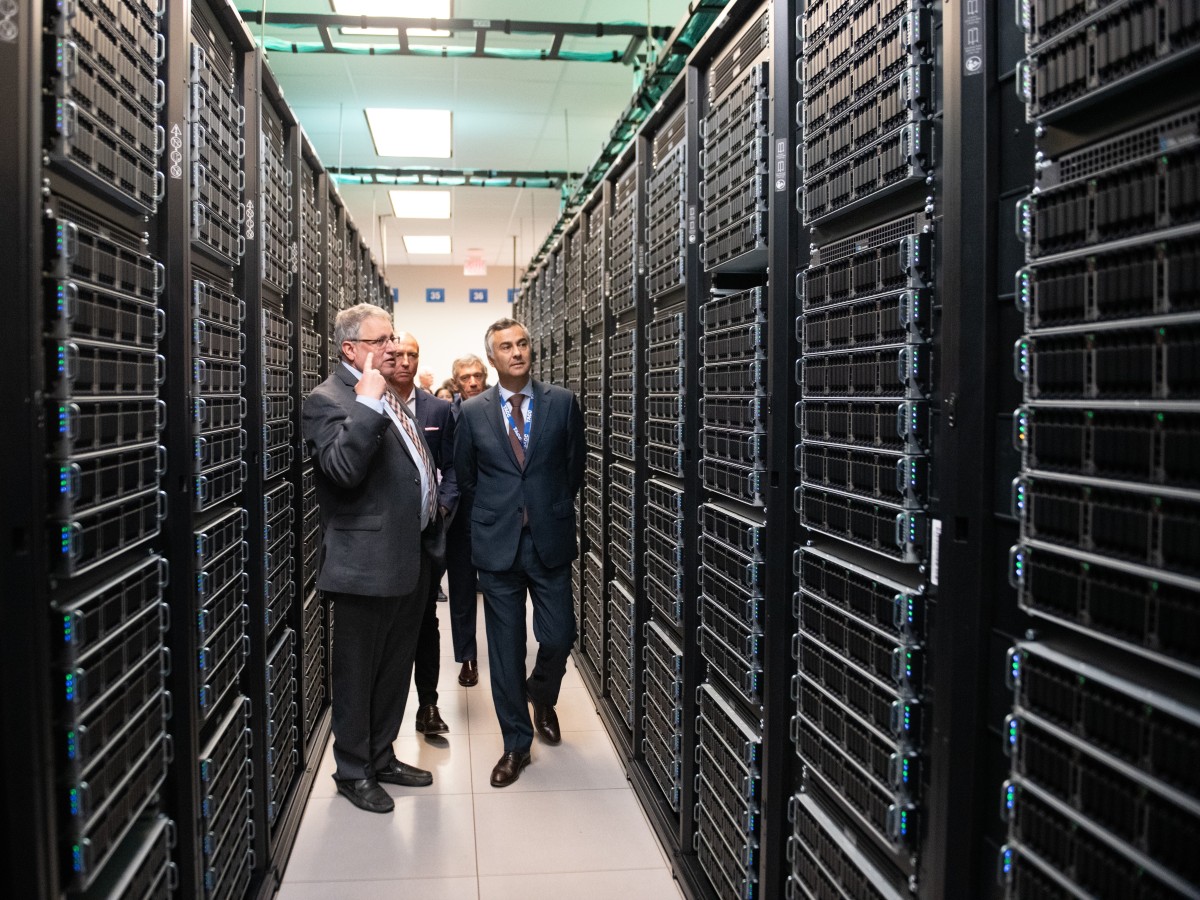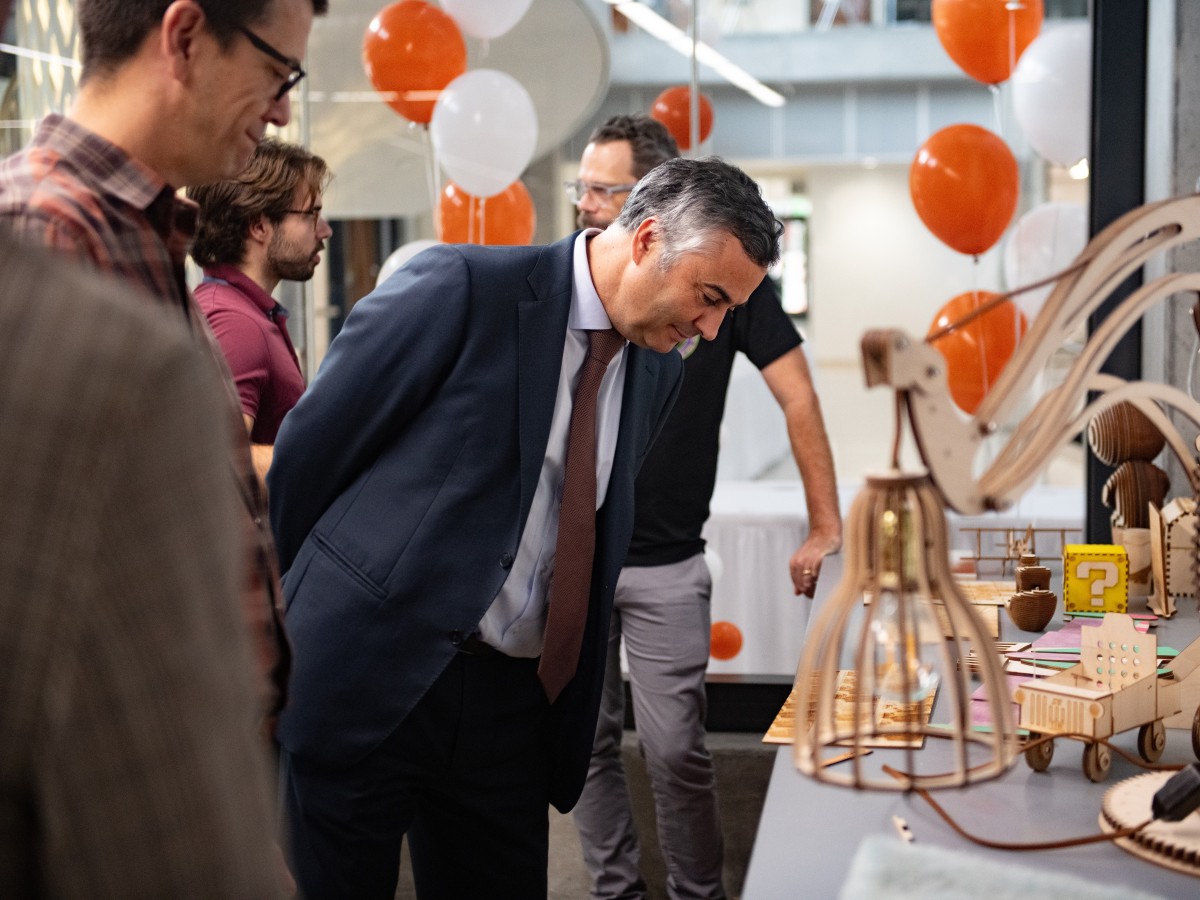
For nearly two decades, researchers from The University of Texas at Austin have worked with Portugal’s best and brightest minds to launch unicorn startups, build up the country’s technology base and facilitate research collaborations beyond institutional and national borders.
This relationship will continue for years to come as UT and the Portuguese government recently renewed their partnership for another five years. UT is one of three universities, along with Carnegie Mellon University and the Massachusetts Institute of Technology, working with Portugal as part of this program.
“Partnering with UT has been a major boost for Portugal, improving our education system, enhancing research capabilities and galvanizing a vibrant startup scene for innovative companies,” said José Manuel Mendonça, national director of the program and a senior researcher at the Institute for Systems and Computer Engineering, Technology and Science in Portugal.
The UT Austin Portugal program, established in 2007, aims to solve important problems in critical and emerging technological fields through advancing education, research and commercialization of discoveries. The fourth phase of the partnership between UT and Portugal’s Foundation for Science and Technology will focus on several key areas arising from the collective work of the researchers, validated by the Portuguese government. They are:
- Developing sustainable energy systems and advancing hydrogen technologies.
- Scaling tools for greener computing and AI.
- Advancing critical materials discovery.
- Harnessing space technologies for Earth applications.
“With the explosion of new technology, there’s a global need for more efficient energy solutions to power these innovations themselves and the computing resources they need,” said Fernanda Leite, associate dean for research at the Cockrell School of Engineering and co-PI in the UT Austin Portugal Program. “Our program aims to further these goals, as well as find and design materials that can be used for a variety of solutions and better understand how space technologies can help us here on Earth.”

Success Stories
Portugal’s collaborations with U.S. universities have grown the nation’s entrepreneurial ecosystem and bolstered its technology scene. The UT Austin program, in particular, has made a significant impact.
According to a recent audit, UT was involved in nearly two-thirds of the 121 startup and spinoff companies that emerged from the first two phases of the program. In the second and third phases, the UT Austin Portugal Program recorded the most applications submitted to project calls among the three U.S. partners.
The University Technology Enterprise Network (UTEN) program, created by Portugal and UT, has led to rapid growth among patents, grants and new spinoffs at universities and increased revenue for those startups. Two startups involved in the program, Feedzai and SwordHealth, became “unicorns,” with valuations over $1 billion.
Several of the founders who went through the programs have grown their companies and received some of the most prestigious honors in the scientific world:
French physicist Anne L’Hullier co-founded Sphere Ultrafast Photonics, which led a strategic research project in 2019 as part of the UT Austin Portugal program. She won the Nobel Prize in physics in 2023.
Luís Graça, who was a principal investigator on an exploratory research project through the program in 2019, won the Pfizer Award in clinical research in 2023 for his work on hybrid immunity protection against SARS-CoV-2, the virus that causes COVID-19.
Paloma Arroyo Huidibro leveraged initial funding from UT Austin Portugal to obtain a prestigious grant from the European Research Council to explore and exploit novel effects in the interplay between confined light and matter.
A Tech and Collaboration Boom
The program has also helped build up technological infrastructure in Portugal. In 2019, the Texas Advanced Computing Center donated a portion of its Stampede supercomputer to Portugal.
The computer was named BOB for Robert Peterson, former associate vice president for research at UT and PI of the first two phases of the UT Austin Portugal program. This technology formed the backbone of the Minho Advanced Computing Center, paving the way for Portugal to enter the European High Performance Computing Joint Undertaking through the installation of the new Deucalion supercomputer.
In addition to the advancements in research, the program has created lasting relationships between UT and innovators in Portugal. Most recently, Fernando Alexandre, Minister of Education, Science, and Innovation, led a two-day visit to the Forty Acres. The minister met with UT leadership, faculty members involved in the Portugal program and toured labs across campus.
UT faculty members host visiting researchers from Portugal as well. In the most recent cohort, 11 Portuguese researchers had the chance to work with leaders in their field and access world-class facilities.
“It has been one of the highlights of my career to watch this relationship build and grow over the last 18 years,” said John Ekerdt, current PI and former associate dean for research at the Cockrell School who led the program for more than six years. “With this next phase of the program, I am excited to see what these talented engineers and scientists can do together.”
